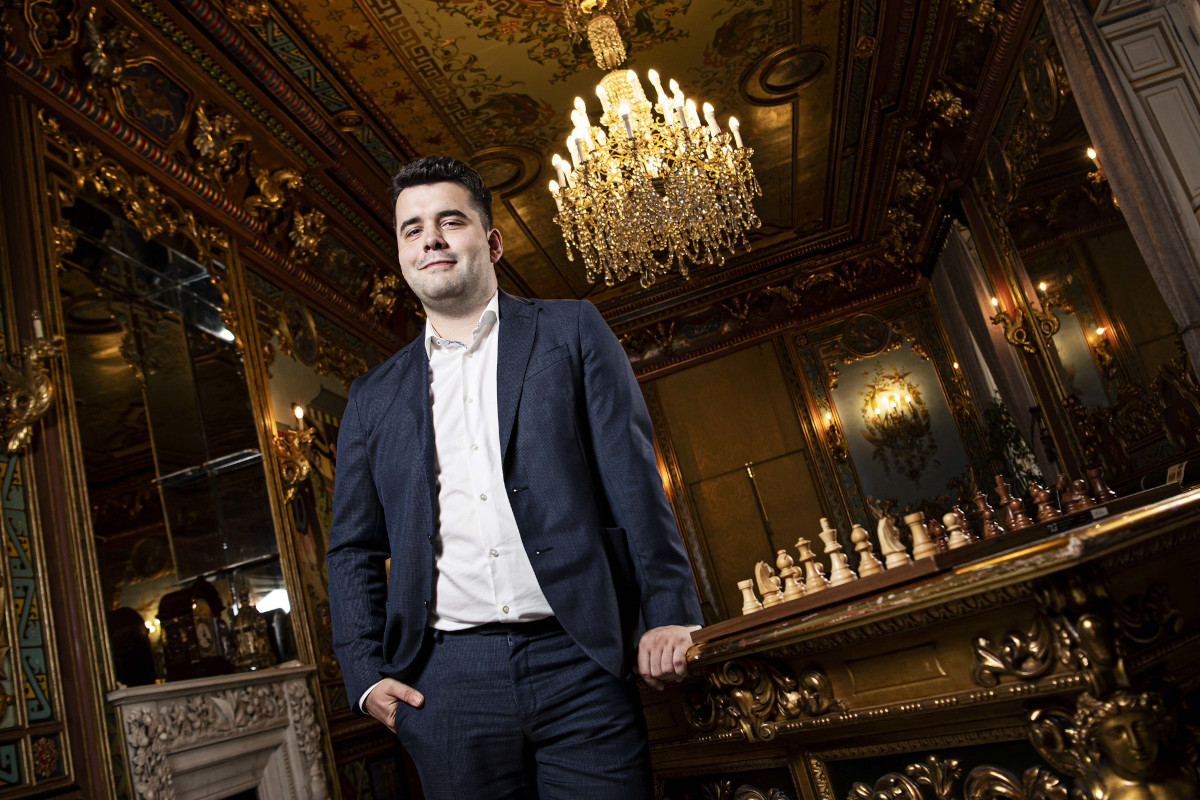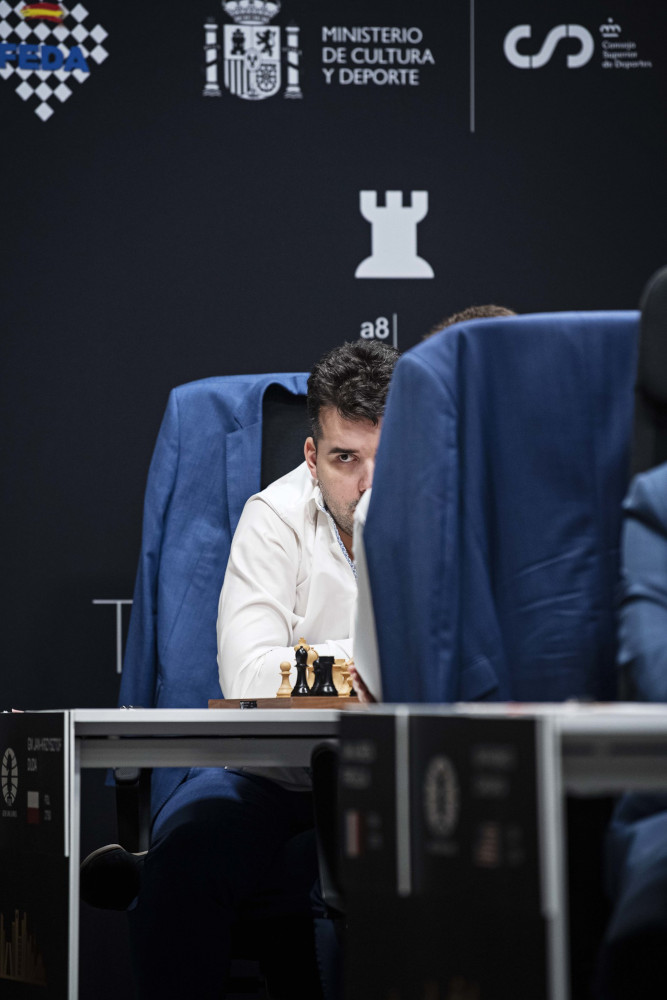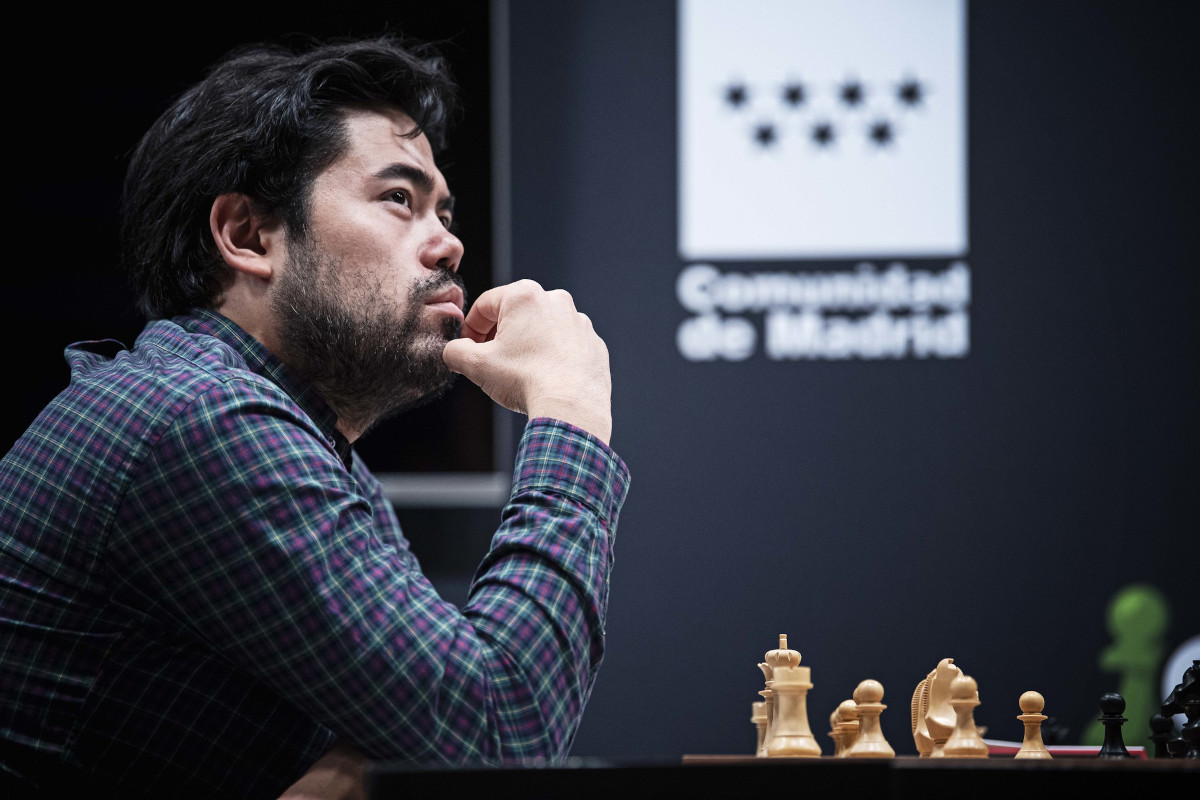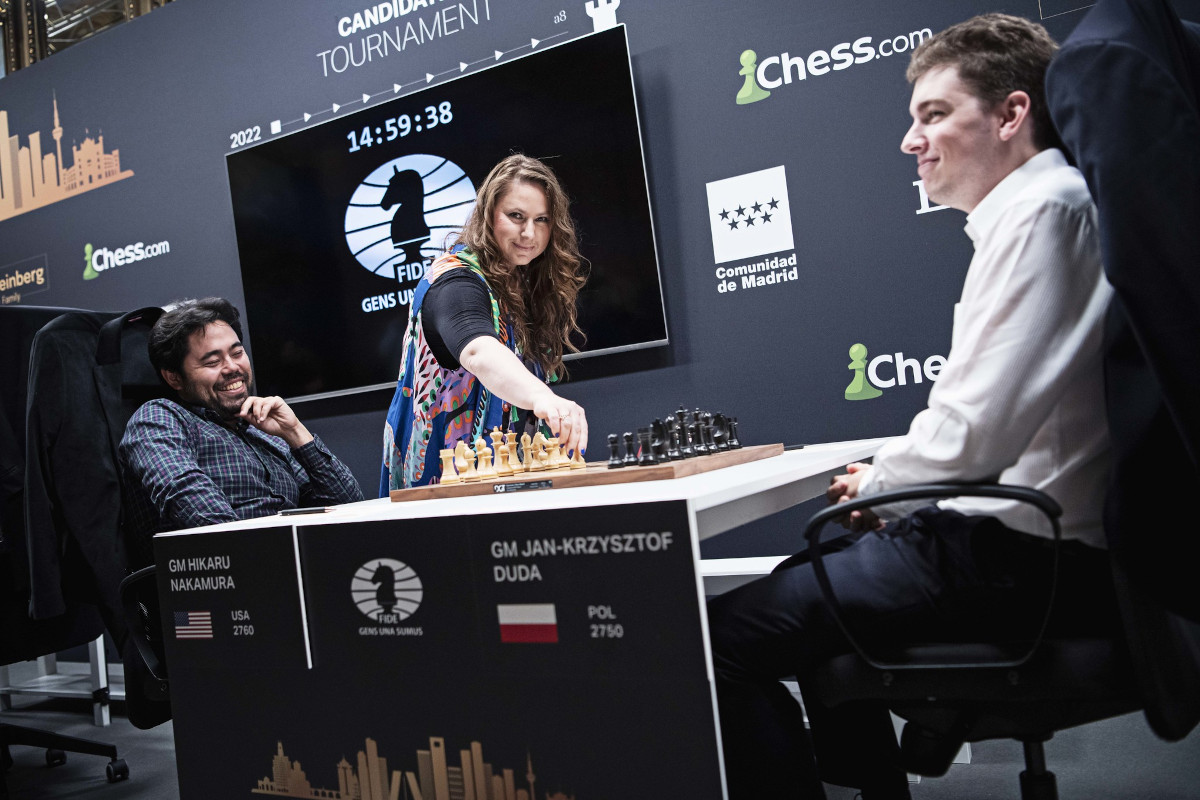


 For a second consecutive time, Ian Nepomniachtchi has won the all-important Candidates Tournament with a round to spare. After collapsing in the match for the World Championship title in December last year, the Russian won the 8-player double round-robin with a commanding performance. Nepo came back harder, better, faster, stronger.
For a second consecutive time, Ian Nepomniachtchi has won the all-important Candidates Tournament with a round to spare. After collapsing in the match for the World Championship title in December last year, the Russian won the 8-player double round-robin with a commanding performance. Nepo came back harder, better, faster, stronger.
In 13 rounds, the challenger for the world crown collected five wins (three with the black pieces) and eight draws for an undefeated 9/13 score. His remarkable performance in Madrid has so far gained him 26.6 rating points, which leaves him in third place in the live ratings list. Nepo is set to face an uninspired Jan-Krzysztof Duda in Monday’s final round.
As emphasized by Garry Kasparov in an interview on Friday, Nepo’s preparation for the World Championship match was a key factor for his victory. That does not take away from the splendid over-the-board performance shown by the Russian, though, as Kasparov also noted.
Like many other pundits, the former world champion mentioned that a painful loss in game 6 of the Dubai match had much to do with Nepo’s collapse against Magnus Carlsen. The challenger’s extraordinary playing strength was never in doubt, but his psychological vulnerabilities became a frequent talking point.
Following this logic, Anish Giri, in an interview with the Candidates’ official commentators, mentioned that Nepo is among the most dangerous opponents for Carlsen, together with Fabiano Caruana, Ding Liren and Wesley So — but Giri added that it should be a version of Nepo “without losing somehow”.
Of course, this is connected with his collapse in Dubai and the fact that he did not suffer any major setbacks in Madrid. Nonetheless, one might also argue that Nepo’s victory in Spain comes not long after the debacle against Carlsen, which might indicate an improvement in his mental resilience.
Furthermore, the Russian was incredibly level-headed after his impressive victory, as he focused on thanking his collaborators in a post-game interview with FIDE. And all that after receiving a massive ovation by the live audience at the Palace of Santoña!
Chess fans honoured Ian Nepomniachtchi with an ovation. 👏👏👏 pic.twitter.com/HxTByVlDTH
— International Chess Federation (@FIDE_chess) July 3, 2022
Multiple acknowledgements of Nepo’s superiority at the Candidates Tournament appeared on social media, which goes to show one of the most salient virtues of the game: i.e. the fact that, more often than not, credit is given where credit is due despite any difference in opinion in external matters.
Peter Heine Nielsen, who criticized FIDE for temporarily allowing Nepo to use a mug with the logo of a Russian company in Madrid, had this to say about the result:
Impressive tournament by Ian Nepomniachtchi, a very well-deserved win!
— Peter Heine Nielsen (@PHChess) July 3, 2022
With an undisputed winner, who was clearly the strongest player in the qualifying tournament for the match, it remains to be seen whether Carlsen will agree to face Nepomniachtchi for a second time...
Returning to Kasparov’s insightful interview, the man from Baku pointed out a historic predecessor which is vaguely similar to the situation surrounding the current World Championship cycle.
Vasily Smyslov won the 1953 Candidates Tournament in Zürich to gain the right to challenge Mikhail Botvinnik in a match for the world crown. After Botvinnik retained the title by drawing the match in 1954, Smyslov again won the Candidates in Amsterdam 1956, and went on to beat Botvinnik at the 1957 match in Moscow.
After noting this parallelism, Kasparov mentioned:
Seeing Nepo again might lower [Magnus’] enthusiasm in preparation and for playing. [...] Winning the second Candidates, especially in the style that we saw in Madrid, definitely makes Nepo a very formidable opponent for Magnus, no matter what Magnus thinks about it. If Magnus plays, and I can hardly believe he will not, we’ll probably see a tougher match.
As he makes his way to Las Vegas to play in the World Series of Poker, Carlsen, naturally, has not yet made a decision.
Magnus Carlsen was asked today if he will play another world title match knowing Ian Nepomniachtchi is the challenger: "We'll see."
— Olimpiu Di Luppi (@olimpiuurcan) July 3, 2022
The ever-witty Anish Giri already has a theory of what will end up being the deciding factor for the world champion.
I think:🥁🥁🥁
— Anish Giri (@anishgiri) July 3, 2022
If they find some nice ideas against the Petroff he might play, otherwise not.
Which brings us to the one intrigue left to be unravelled in the tournament. If Carlsen chooses not to play, Nepo will face the player who gets second place in Madrid. Only two participants remain in contention for this spot: Hikaru Nakamura and Ding Liren.

Hikaru Nakamura | Photo: FIDE / Stev Bonhage
As the round progressed, after Nepo secured victory by drawing his game with Richard Rapport, the attention turned to the fight for second place.
Ding Liren tried to complicate matters with white against Alireza Firouzja, but could only get a 42-move draw after the youngster correctly sacrificed his bishop for two pawns in the endgame. Hikaru Nakamura, meanwhile, was a pawn down against Jan-Krzysztof Duda in a complicated position.
Duda is having a tough time in Madrid. Not only has he under-performed, but he has also shown visible signs of disappointment during the games. Here, in a better position against an in-form Naka, he faltered once again.
Pushing the pawn with 33...b4, closing the position and intending to make the most of his extra pawn in the long run, was the most logical continuation. As the commentators noted, this is a move Duda would play 99 out of 100 times, correctly assessing how to best take advantage of his material edge.
However, Duda played 33...d5 instead. After 34.cxd5, his idea was to play 34...Rc2, apparently failing to foresee that White counted with 35.Bd6
The position is still dynamically balanced, but Duda realized that he had just given away his advantage. Thus, after 35...Rxe2 36.Bxc7 Nc5 37.d6, the Polish grandmaster made another mysterious, incorrect decision.
Duda returned with his knight to block the d-pawn with 37...Nd7 instead of grabbing the exchange with 37...Nxd3. Granted, there are variations following the capture on d3 that need to be calculated precisely — like 38.d7 Ra8 39.Rxd3, etcetera — but if Black was afraid of these lines, he could have gone for 36...exd5 instead of placing his knight on c5 in the first place.
Furthermore, we know that Duda is a great calculator. In normal situations, even under pressure, he is surely capable of noticing that grabbing the exchange is a playable alternative.
Once the tables turned, Nakamura was ruthless in conversion, as he found good-looking moves (e.g. 41.Kh2 and 50.Rc8) on his way to a crucial 52-move victory.
The 5-time US champion is now in sole second place, a half point ahead of Ding. In an attractive encounter, which might decide who challenges Nepo in the next match for the world crown, Nakamura will have the black pieces against Ding in Monday’s final round.

Judit Polgar played the first move (1.e4 of course!) in Hikaru Nakamura vs Jan-Krzysztof Duda | Photo: FIDE / Stev Bonhage
| Advertising |